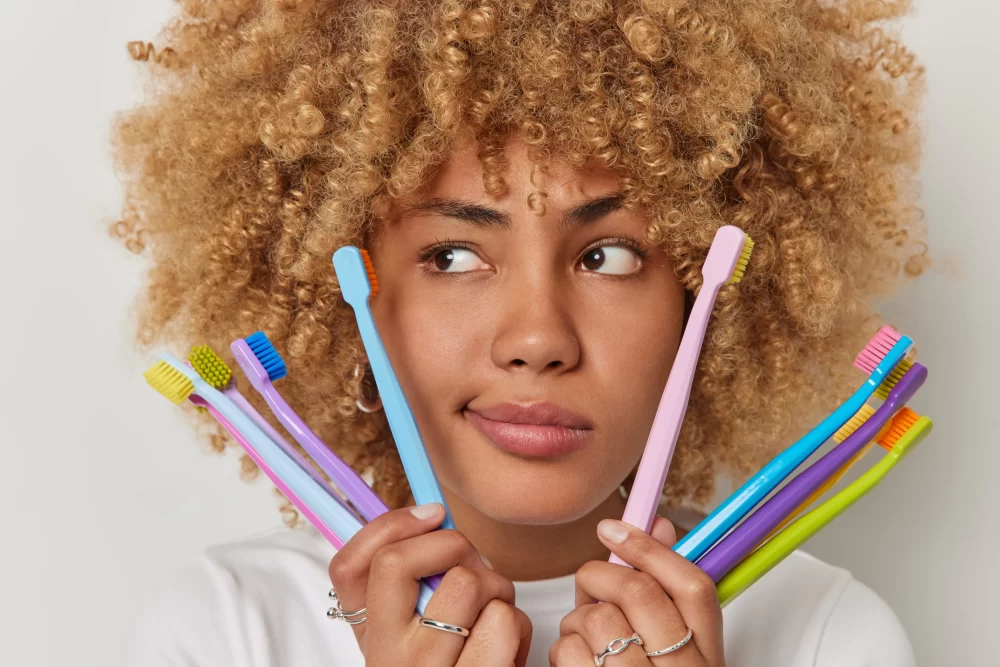
Why Choosing the Right Toothbrush Matters
When it comes to maintaining healthy teeth, your toothbrush plays a crucial role. It’s not just about brushing regularly – it's about using the right tool for the job. The right toothbrush can help prevent gum disease, reduce plaque buildup, and ensure a healthier smile in the long term. But with so many options available, how do you know which toothbrush is best for your oral care routine? Let’s dive into the factors you need to consider before making your selection.
Types of Toothbrushes: Manual vs. Electric
One of the first choices you'll face is whether to go for a manual or electric toothbrush. Both can effectively clean your teeth when used correctly, but there are distinct advantages to each:
- Manual Toothbrush: Affordable, portable, and simple to use. It's a great option for people who prefer a hands-on approach to brushing.
- Electric Toothbrush: Offers a more thorough clean with less effort. The oscillating and rotating bristles can help remove more plaque, making it ideal for those who struggle with consistent brushing technique.
Research suggests that electric toothbrushes are more effective at reducing plaque and gingivitis compared to manual toothbrushes, but your personal preference and budget should ultimately guide your decision.
Bristle Types: Soft, Medium, or Hard?
Another important factor is choosing the right bristle hardness for your needs. The bristle type you select will affect how gently or aggressively the toothbrush cleans your teeth and gums:
- Soft Bristles: The most recommended option by dental professionals, as they are gentle on the gums and enamel while still being effective at plaque removal.
- Medium Bristles: A good middle ground for those who prefer a firmer brush but still want to avoid damage to sensitive gums.
- Hard Bristles: These can be too abrasive, potentially causing gum recession and enamel wear, and are generally not recommended.
If you have sensitive teeth or gums, always opt for soft bristles to avoid irritation. It's also worth noting that the angle and design of the bristles (e.g., angled, multi-level) can make a difference in how well the brush reaches all areas of your mouth.
How to Choose the Best Toothbrush for Your Needs
Choosing the best toothbrush goes beyond just bristle type and manual vs. electric. There are a few additional factors that will influence your choice:
- Size of the Head: A toothbrush head that is too large can be difficult to maneuver in your mouth, while a head that’s too small might not cover enough surface area. Opt for a head size that allows you to reach all areas of your mouth comfortably.
- Handle Design: If you have arthritis or limited dexterity, a toothbrush with a larger, ergonomic handle can help you grip and control the brush more easily.
- Special Features: Some electric toothbrushes come with built-in timers, pressure sensors, or different brushing modes to further improve your brushing routine.
For those with specific needs, such as braces, dental implants, or gum disease, there are toothbrushes specially designed to cater to these conditions. It's worth consulting with your dentist if you have any concerns about which brush is best suited for your oral health.
Top Toothbrush Recommendations for Healthy Teeth
Now that we’ve covered the essentials, let’s explore some of the best toothbrush options for maintaining healthy teeth:
- Oral-B Pro 1000 Electric Toothbrush: A top choice for its reliable performance, affordable price, and effective plaque removal.
- Philips Sonicare ProtectiveClean 6100: A premium electric toothbrush with pressure sensor technology and multiple brushing modes for a personalized experience.
- Colgate 360° Total Advanced Soft Toothbrush: A highly rated manual toothbrush with soft bristles and a comfortable grip, ideal for everyday use.
These toothbrushes are some of the best-rated products for maintaining healthy teeth and gums. Depending on your preference for manual or electric, one of these models could be the perfect fit for your oral care routine.
Conclusion and Final Tips
Choosing the right toothbrush is an important step in maintaining healthy teeth and gums. While there are many options on the market, the key factors to consider are the type of toothbrush (manual or electric), the bristle softness, and the design that best suits your personal needs. By carefully selecting a toothbrush that meets these criteria, you’ll be setting yourself up for better oral hygiene and a brighter, healthier smile.
If you’re ready to upgrade your toothbrush, be sure to check out our top recommendations for the best toothbrushes available. Whether you’re looking for an electric toothbrush with advanced features or a simple yet effective manual option, there’s a brush that’s right for you.
Click here to explore more toothbrushes and find the best one for your needs!







 Westgate Dental Arts
Westgate Dental Arts Coventry Family Dental
Coventry Family Dental Familia Dental
Familia Dental Dr. Daniel S. Fife, DDS
Dr. Daniel S. Fife, DDS Dentistry At Suburban Square: Michael I. Wollock, DMD
Dentistry At Suburban Square: Michael I. Wollock, DMD Comfort Care Dental
Comfort Care Dental The Importance of Oral Health Education During Pregnancy for a Healthy Pregnancy
The Importance of Oral Health Education During Pregnancy for a Healthy Pregnancy Why Skipping Dental Checkups Can Lead to Bigger Oral Health Problems
Why Skipping Dental Checkups Can Lead to Bigger Oral Health Problems Advantages of Porcelain Dental Restorations
Advantages of Porcelain Dental Restorations Best Tips for Brushing Your Teeth Properly for Healthy Gums: Essential Techniques for Oral Health
Best Tips for Brushing Your Teeth Properly for Healthy Gums: Essential Techniques for Oral Health How Can Diabetes Cause Tooth and Gum Problems? Preventing and Managing Oral Health Issues
How Can Diabetes Cause Tooth and Gum Problems? Preventing and Managing Oral Health Issues Healthy Habits for Promoting Good Oral Health and Hygiene: Tips for a Healthy Smile
Healthy Habits for Promoting Good Oral Health and Hygiene: Tips for a Healthy Smile